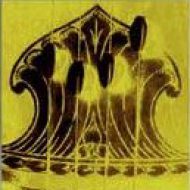Why not play music together and connect again – the way families have shared music for thousands of years, and long before music became a commodity? Listen to Spark’s Next Big Thing series, which explores how technology in various guises might affect humanity in the far future: How will we experience music in 2050? >>
Category archives: Course topics
Video | Layavinyasam by T.R. Sundaresan and ensemble – Navarasa Navarthri
Doordarshan television 07/10/2019T.R. Sundaresan Mridangam & Konnakkol, M.A. Sundareswaran Violin, Papanasam Sethuraman Kanjira, Trichy Murali Ghatam, A.S. Krishnan Morsing, Rama Sundareswaran Tampura. Related post“Sampradaya is like a broad river and the bani is a tributary”: Umayalpuram Sivaraman on his 75 years of performance >>
Video | Interview with MD Ramanathan
https://youtu.be/FLwECeG4txI Clip from interview with Dr. Amy Catlin and Dr. Frederick Liberman, Dec 1977 MDR talks about his background and he was initiated into Carnatic Music Related post“Sampradaya is like a broad river and the bani is a tributary”: Umayalpuram Sivaraman on his 75 years of performance >>
Raga Hamsadhvani in: “India’s classical music may be the best antidote to chauvinism” by Ramachandra Guha
To read the full article by the internationally acclaimed author of India After Gandhi, click here >> After Partition, Bade Ghulam chose to move to Pakistan, but, finding the audience for classical music limited (in all senses of the word), wished to return to the Indian side of the border. In the 1950s, it was …
Flute TS Sankaran – Kalakshetra 1988
1. 0:0:00 kAmbhOdi aTa tALa varNam 2. 0:11:11 gajAnanayutam – chkravAkam 3. 0:20:16 sogasu jUDa – kannaDagowLam 4. 0:26:50 nenaruncarA nApaini – simha vAhini 5. 0:34:15 cinna nADE – kalAnidhi 6. 0:45:35 rAgam + manasu swAdhInamaina – shankarAbharaNam 7. 1:20:22 rAgam+ meevalla – kApi 8. 1:35:38 rAgam + parama pAvana rAma – pUrvikalyANi + thani …
